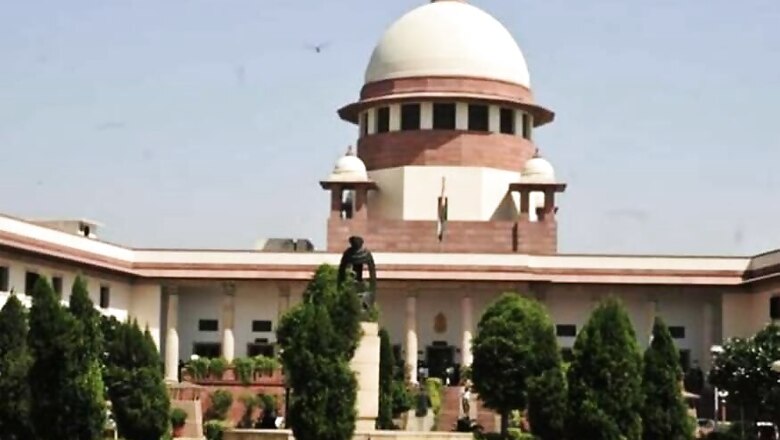
views
The Supreme Court on Friday sought for an authoritative decision by its Constitution Bench as to whether Governors can approve a policy for early release of convicts irrespective of the gravity of crimes they committed.
A bench headed by Justice Uday U Lalit said a five-judge bench should examine the legal sanctity of such policies put in place through executive orders of the Governor of various states under Article 161 of the Constitution.
Article 161 empowers the Governor to commute, remit and pardon the sentence of a convict.
The chief issue of consideration for the larger bench will be if remission can be granted in a blanket fashion, prematurely.
It will examine when Section 433A, CrPC, stipulates that there cannot be any pardon or remission for a person, who has been convicted of a crime that entails death sentence as the maximum punishment, before undergoing 14 years in jail, can a policy by a state government negate the intent of the law.
On Friday, a three-judge referred the matter to the Chief Justice of India for setting up a Constitution Bench to consider if any state can have such a policy notwithstanding the facts involved.
The bench also recorded its appreciation for advocate Shikhi Suri, who was appointed as amicus curiae in the present matter, involving a life term convict from Haryana. "We will be appointing you as amicus in many more cases now," Justice Lalit told Suri while delivering the verdict through video-conferencing.
Earlier, the court had sought a categorical explanation from the Haryana government regarding such a policy in the state that permitted granting pardon to the convicts above a certain age and after a certain tenure, notwithstanding the offences they were held guilty of.
"We can understand the Governor exercising his constitutional powers to give pardon to not just one but even ten persons in particular fact circumstances. But can there be a policy of a blanket pardon irrespective of different facts leading to conviction for different kinds of offences?" asked the top court.
The bench asked Haryana government’s lawyer whether it would not be contrary to Section 433A of the Criminal Procedure Code that specifically prohibits releasing a convict in a case like murder before serving 14 years behind bars.
“How will this not be to be in conflict with Section 433A of the Code of Criminal Procedure, 1973,” asked the bench, which also included Justices MM Shanatanagoudar and Vineet Sharan.
“This provision (Article 161) empowers the Governor to release convicts after the term fixed by the law. But can it be said that a policy could be framed under Article 161 of the Constitution of India, which would run counter to the mandate of Section 433A of the CrPC? Can a policy of a state do what is prohibited under the law?” questioned the top court.
The bench wondered whether all individual cases in which benefit was granted in respect of the aforesaid policy were placed before the Governor of the State and whether facts of individual cases were considered by the authority before granting benefit of remission.
The case involved a convict in the case who was sentenced to life imprisonment in a murder case. Suri was appointed as a legal aid lawyer for the appellant in the case through the Supreme Court Legal Services Committee.
While the bail application by the appellant in this case remained pending, the court was informed by Suri that the petitioner was already released from jail since he was older than 75 and had served eight years in jail.
The development made the bench wonder if there can be such a policy that allows premature release even before completion of actual sentence of 14 years in connection with an offence punishable under Section 302 IPC (murder).















Comments
0 comment